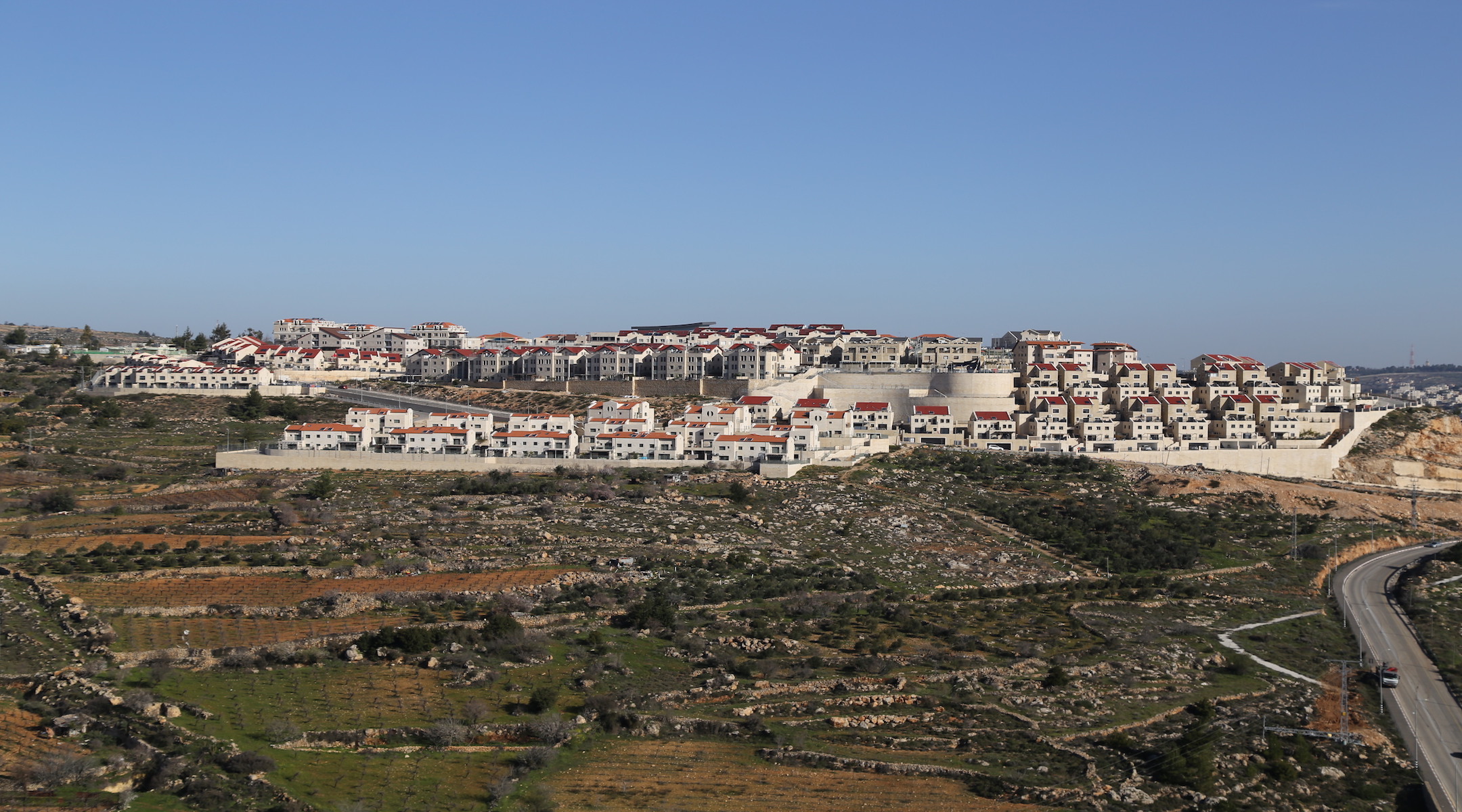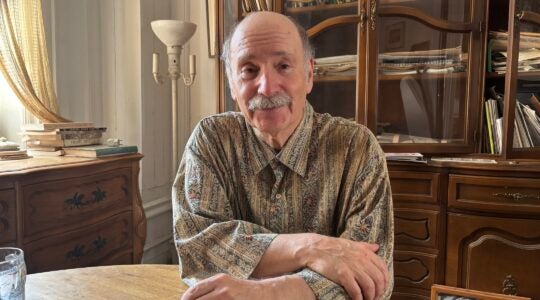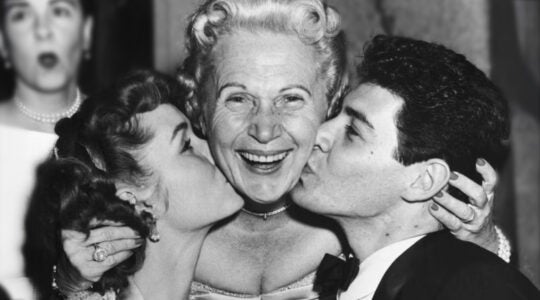(New York Jewish Week) – A tour promoting real estate in Israel and West Bank settlements that has become a flashpoint for controversy and pro-Palestinian protests canceled its final event in Brooklyn on Wednesday due to security concerns, an organizer said.
Gidon Katz, a producer of the My Home in Israel real estate events, said the hosts of the exhibition, which was due to take place at a synagogue in the Flatbush-Midwood area, called it off due to “serious threats.” Katz said he disagreed with the decision and that community leaders “succumbed to terror.”
“There’s nothing I could [do],” Katz told the New York Jewish Week. “It was not in my hands.”
The synagogue where the event was set to be held, Khal Bnei Avrohom Yaakov, did not answer phone calls on Tuesday or Wednesday. Its “simcha hall” is frequently used for community events.
A coalition of pro-Palestinian groups declared “victory” due to the event’s cancellation and called for a rally instead of the planned protest.
The Brooklyn event was to be the last stop on a tour that included exhibitions in heavily Jewish areas such as Teaneck, New Jersey; Montreal; Toronto; and Lawrence, New York. The other events drew fierce criticism and protests but were not canceled.
Katz, who works for a public relations company in Israel, where he lives, said the real estate group has been doing the tour for 20 years. This year, following Hamas’ Oct. 7 attack on Israel and during the ensuing war, the real estate events have become both more popular, Katz says, and more controversial. In addition to drawing attendees interested in owning Israeli real estate while the country undergoes a crisis and antisemitism rises abroad, the events have also drawn activists who claim the exhibitions are hawking “stolen Palestinian land” — a claim Katz denies.
“People feel that there’s a big problem here, so as much as there’s a problem in Israel, if really there’s trouble, it’s better to be all together, and they feel Israel’s their home,” Katz said, referencing reports of rising antisemitism. He said that U.S. stops on the tour in previous years would draw up to 250 participants, but this year brought in as many as 400.
Some of the potential buyers, Katz said, are looking to Israel as a safe haven, while others want a vacation home or to be close to children. The war appeared to have gotten prospective buyers off the fence, he said. “What happened is the war expedited it and not the other way around,” he said.
At the events, 35 vendors marketing 100 real estate projects staff tables and make pitches to attendees to buy homes in Israeli locales popular with American immigrants, providing information on topics such as mortgages and shipping property overseas. The developments are in population centers such as Jerusalem, Tel Aviv and Haifa, as well as smaller cities with large Orthodox populations such as Beit Shemesh and Givat Shmuel. Three West Bank settlements — Efrat, Neve Daniel and Maale Adumim — are also advertised on a flier promoting the events, although Katz said he was only aware of vendors active in Efrat.
Controversy over the initiative spread after Rich Siegel, who identified himself as a Jewish resident of Teaneck, spoke out against the stop in his town at a town council meeting in February. Siegel claimed the event was illegal, alleging that only Jews were allowed to attend, that the synagogue was running the event and that settlement homes were being sold.
The speech, in which Siegel claims the event “violates both domestic law and international law,” went viral online and led to a protest of hundreds carrying signs that said “resistance until liberation” outside the Teaneck event.
Further protests, and pro-Israel counter-protests, took place at the tour’s other stops. At one protest in Toronto, a man who appeared to be a counter-protester against the Palestinian groups was arrested for carrying a nail gun, Canadian media reported.
Katz disputed the protesters’ charges. He said the events were not restricted to Jews and that the synagogues were renting space, not co-hosting the events. Nor did the vendors directly sell homes at the events, he said. The Anti-Defamation League also issued a warning about the “inaccurate, divisive and inflammatory rhetoric” surrounding the events.
Regarding the properties in settlements, Katz drew a distinction common among wide segments of Israelis. While the United Nations and nearly all countries consider settlements to violate international law, many Israelis distinguish between built-up, suburban settlements close to the West Bank’s border with Israel, and less established outposts deeper in the West Bank, many of which are considered illegal under Israeli law as well. (Israelis on the far right support the outposts and call for their expansion.)
Efrat, Neve Daniel and Maale Adumim are relatively close to Jerusalem. They have been referred to in the past as “consensus” settlements that would almost certainly be annexed to Israel should a peace deal with the Palestinians ever emerge. Katz also said the vast majority of homes on the tour were located within Israel’s recognized borders.
Ahead of the Brooklyn event, pro-Palestinian groups issued condemnations and vowed to protest. The Council on American-Israeli Relations in New York, known as CAIR, advertised a demonstration, accusing the organizers of “land theft.”
CAIR’s New York branch said dozens of activist groups from around the city were backing the protest as co-sponsors. Protest organizers called on followers to pressure public officials, including the attorney general’s office, to cancel the events, alleging they were illegal. The attorney general’s office did not respond to a request for comment.
In an Instagram post declaring victory, one of the pro-Palestinian groups, called Al-Awda, also laid claim to the land on which the homes stand — without distinction between the West Bank and Israel.
“The illegal real estate sale of stolen Palestinian land in Flatbush, Brooklyn was CANCELLED!” it said. “We will continue to SHUT IT DOWN for PALESTINE and fight for our land until full liberation and return from the river to the sea.”
The New York Jewish Week brings you the stories behind the headlines, keeping you connected to Jewish life in New York. Help sustain the reporting you trust by donating today.





